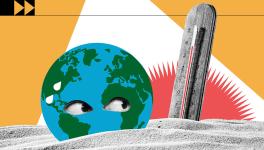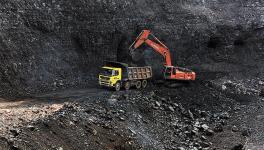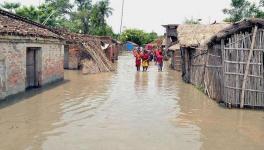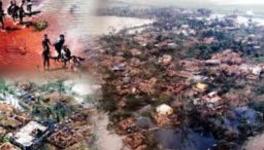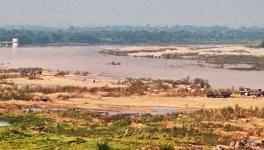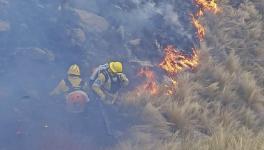Leaked Draft Report of IPCC Warns ‘Worst Yet to Come for Today’s Children, Grandchildren’
Image Credit: RFI
“Life on Earth can recover from a drastic climate shift by evolving into new species and creating new ecosystems, humans cannot,” this is among some of the harsh warnings in a draft report prepared by the Intergovernmental Panel on Climate Change (IPCC). The leaked draft was obtained by AFP, a global news agency based in Paris, which published it on June 23.
The landmark report, being prepared by IPCC, was expected to be published in phases this summer and next year. Reportedly, a significant part of the report would not have been published before the COP26 meetings or the United Nations Climate Change Conference, which are scheduled to take place in Glasgow in November this year.
The leaked draft report suggests that the grave impacts of man-made climate change are very likely to be worse than most people realise. The climate change will likely reshape life in the coming decades, even in a situation where greenhouse gas emissions are controlled to some extent. The draft also warns of a series of tipping points, beyond which it may be impossible to recover from climate breakdown.
Tipping points are activated when temperature reaches a threshold level, where one impact can lead to a rapid activation of a series of cascading events. These cascading events may have devastating repercussions in return. For example, the rising temperature is leading to the melting of the Arctic permafrost (any ground that remains frozen completely, at 0 degree Celsius for at least two years straight). As a result of it, the soil starts to release the methane deposit in it. Methane is a potential greenhouse gas, which causes more heating in return.
There are other tipping points which are vulnerable to climate change. These include the melting of the polar ice sheets. This, once underway, may prove to be nearly impossible to reverse, even if carbon emission is reduced rapidly. This phenomenon would lead to sea level rise catastrophically, which again can last for many decades. Scientists warn that this may lead to the Amazon rainforest turning to a savannah. Switching of the Amazon rainforest may arrive quickly and within a small range of temperature rise.
In response to the leaked document, IPCC reportedly released a statement where it denied to comment on the contents of the draft as the work is still ongoing.
Climate scientist Francois Gemenne, an author of the IPCC report and the person who leads the Hugo observatory emphasised that the draft leaked by AFP will be revised before producing the final report and that it may even include some extra sections.
“Disclosure of results prior to the outcome of this process undermines the credibility of the work of the IPCC as a whole,” Gemenne was quoted to have said. “This is not the version that will be adopted in February 2022,” he wrote on Twitter.
The IPCC draft, according to AFP, includes 12 important tipping points. “The worst is yet to come, affecting our children’s and grandchildren’s lives much more than our own,” the draft was mentioned to have said in the AFP report.
Notably, previous reports by IPCC in 2018, have been criticised to have underestimated tipping points.
The leaked draft has four main takeaways. First is that with 1.1 degrees Celsius of warming clocked so far, the climate is already changing. A decade ago, scientists believed that limiting global warming to two degrees Celsius above mid-19th century levels would be enough to safeguard our future.
According to the draft, “That goal is enshrined in the 2015 Paris Agreement, adopted by nearly 200 nations which pledged to collectively cap warming at “well below” two degrees Celsius – and 1.5 degrees if possible. Current trends suggest a three degrees Celsius rise at least.”
“Earlier models predicted that we were not likely to see climate change that are Earth-altering, before 2100. But the UN draft report says that prolonged warming even beyond 1.5 degrees Celsius could produce “progressively serious, centuries’ long and, in some cases, irreversible consequences”,” the AFP report said.
“Even at 1.5 degrees Celsius of warming, conditions will change beyond many organisms’ ability to adapt,” the report notes, adding “Coral reefs – ecosystems on which half a billion people depend – are one example.”
Get the latest reports & analysis with people's perspective on Protests, movements & deep analytical videos, discussions of the current affairs in your Telegram app. Subscribe to NewsClick's Telegram channel & get Real-Time updates on stories, as they get published on our website.










